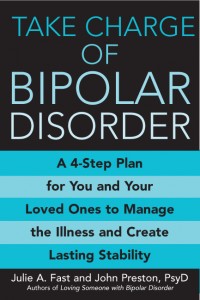 This week’s blog features a chat with author/bipolar expert Julie Fast. Julie read “Light Fixtures” a few months ago and, with her insights on teen bipolar disorder, she recently sat down with me to offer her take on the novel. I hope to have her back soon for another interview.
This week’s blog features a chat with author/bipolar expert Julie Fast. Julie read “Light Fixtures” a few months ago and, with her insights on teen bipolar disorder, she recently sat down with me to offer her take on the novel. I hope to have her back soon for another interview.
1. In “Light Fixtures”, Aurora is facing the onset of teen bipolar. How many novels are you aware of that focus on a bipolar teen?
I don’t know of any novels! The topic seems to be covered in memoir, in nonfiction, and these memoirs are often very depressing. “Light Fixtures” doesn’t work that way.
2. Aurora is an intelligent, observant, and social teen. Do you think there is a correlation or connection between a teen being bipolar and talented?
Absolutely. When I work with parents of children with bipolar we always talk about bipolar and intelligence. I believe 100% that people with bipolar disorder are different. Not better, just different. We’re more intellectual and cerebral. This is just from my experience from working with, and knowing thousands of people with bipolar disorder, and their family members. This is why it’s very upsetting for parents if their child gets really ill because so many parents say to me: “But, he’s so smart or she is so talented!”3.
3. Why would you recommend this novel?
I think it’s important for teens who’ve been diagnosed with bipolar to know they’re not
alone. I can identify with Aurora because I know that buzzing feeling of being manic,
and what it’s like to lie on the couch and have no idea why it’s all happening.
4. One reviewer who read “Light Fixtures” said she felt the descriptions of Aurora’s mania was authentic, but she disliked the mystical figures. Any comment?
The mystical figures make the book very different and I can see how they would be puzzling to a reader. It was like that for me at first because those could have been manic visions or psychotic delusions. That’s one of big discussions about seeing things when you’re ill. I don’t believe that manic or psycho delusions or visions are mystical. But it’s not a problem with having actual mystical characters in a book. They appear in tons of novels. Why not one about bipolar disorder?




Leave a Reply